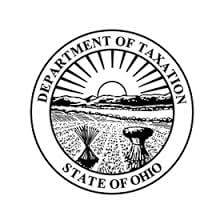Over the past few weeks, we have received dozens of calls from clients, who have received tax notices from both the Internal Revenue Service and the State of Ohio.
 These notices indicate tax balances are due for the 2019 tax year, including additional penalty and interest charges. The vast majority of these notices were automatically generated by the taxing authority’s computer systems. While typically, these notices would reflect current information regarding the taxpayer’s account – THIS IS NOT A TYPICAL YEAR!
These notices indicate tax balances are due for the 2019 tax year, including additional penalty and interest charges. The vast majority of these notices were automatically generated by the taxing authority’s computer systems. While typically, these notices would reflect current information regarding the taxpayer’s account – THIS IS NOT A TYPICAL YEAR!
Unfortunately, both the IRS and the State of Ohio are behind in processing tax payments, which have been submitted in a timely manner during the pandemic months. Tax returns and payments, which were electronically submitted, have been processed. However, payments submitted via the U.S. Postal Service still require human handling and processing may have not been applied appropriately to the taxpayer’s account.
 This situation has led to the reporting of an outstanding balance and the related penalty and interest charges being assessed.
This situation has led to the reporting of an outstanding balance and the related penalty and interest charges being assessed.
On Aug. 19, Columbus-based IRS Stakeholder Liaison Dennis Bell responded to an Ohio Society of CPAs inquiry regarding the notices.
Regarding pending check payments and payment notices, Bell said if a taxpayer mailed a check (either with or without a tax return), it may still be unopened in the backlog of mail the IRS is processing due to COVID-19. Any payments will be posted as the date received, rather than the date the agency processed them. To avoid penalties and interest, taxpayers should not cancel their checks and should ensure funds continue to be available so the IRS can process them.
To provide fair and equitable treatment, the IRS is providing relief from bad check penalties for dishonored checks the agency received between March 1 and July 15 due to delays in this IRS processing. However, interest and penalties may still apply.
“Payments can take up to three weeks to post to our system after being cashed, so IRS is advising taxpayers and reps to wait as stated above,” Bell wrote. “At that time, they will post back to the date we received them.”
Nearly a week after this blog was first published, Rep. Richard Neal (D-MA), who chairs the tax-writing House Ways and Means Committee, asked the IRS to quit mailing notices for unpaid taxes to taxpayers, who may have been affected by the mail backlog at the agency due to the COVID-19 pandemic.
According to an Accounting Today article, earlier this summer, the IRS had a backlog of over 12 million pieces of unopened mail.
“The IRS should not resume sending notices to taxpayers until the backlog has been reduced to pre-pandemic levels and taxpayer accounts have been updated,” Rep. Neal wrote to IRS Commissioner Charles Rettig. “At such time, the IRS should carefully review any notices before sending to ensure that they are correct and timely and that taxpayers are in no way being penalized for the delay. The IRS should not make its backlog problem a taxpayer problem.”
On Aug. 21, the IRS announced it had temporarily stopped sending out three balance due notices - the CP501, the CP503 and the CP504.
Taxpayers who have received but not yet responded to a CP14 balance due notice are encouraged to promptly respond.
Zinner & Co. recommends you wait 30 days before responding to a CP501, the CP503 and the CP504 notice. We are hopeful that over the next month, both the IRS and the State of Ohio will catch-up in processing payments and applying them to taxpayer’s accounts. This should clear up the matter, but there is no guarantee you may not receive another computer-generated notice.
While any unexpected communication from a taxing authority can be alarming – do not panic! Just consider this another COVID-19 challenge!





